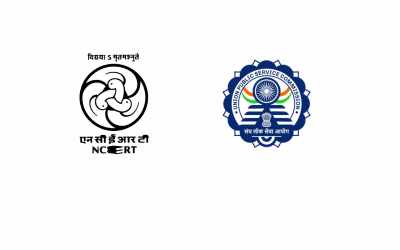For a final-year undergraduate student contemplating the UPSC journey, the mountain of study materials can seem overwhelming. Yet among this vast library, one resource consistently emerges as indispensable: NCERT textbooks.

Here’s why these foundational texts could be your most strategic ally in conquering the civil services examination.
Table of Contents
The NCERT Advantage: Building Your Knowledge Foundation

When Rahul Sharma, a history graduate from Delhi University, first considered preparing for the UPSC examination, he was bewildered by the extensive reading lists recommended by coaching centers. However, his mentor—a serving IAS officer—gave him simple advice that changed his approach: “Master your NCERTs before anything else.”
NCERT textbooks provide clear, conceptual knowledge across subjects in language that’s accessible yet comprehensive. Unlike specialized reference books that sometimes overload aspirants with excessive details, NCERT books present information in a structured, digestible format that aligns perfectly with how the UPSC frames its questions.
Learning from Toppers: The NCERT Strategy in Action
Tina Dabi, who secured All India Rank 1 in the 2015 UPSC examination, often credits NCERT books as her primary study resource. “I started my preparation by reading NCERT textbooks from Class 6 to Class 12,” she shared in an interview. “These books gave me clarity on fundamental concepts that later helped me tackle more complex study materials.”
This approach isn’t coincidental. NCERT textbooks are designed to build knowledge progressively, introducing concepts at a basic level before expanding into more sophisticated understanding—precisely the learning curve that UPSC preparation demands.
The Authority Factor: Why Examiners Trust NCERT Content
The UPSC examination pattern reveals a significant preference for NCERT material. Consider this scenario: During my conversation with Vikram, a successful civil servant, he recalled a question from his preliminary examination that directly referenced a paragraph from Class 10’s Science NCERT textbook. “I remember reading that exact explanation about acid rain effects just two days before the exam,” he said. “That single correct answer might have been my gateway to qualifying for the mains.”
NCERT books represent the official educational standard established by the government itself. This gives them an inherent authority that makes them the safest source for factual information—especially important when a single incorrect answer could cost you precious marks.
Beyond Facts: Developing Analytical Perspective
Priya, now in the Indian Foreign Service, shared how NCERT books shaped her analytical thinking: “When studying the Class 12 Political Science textbook, I was impressed by how it presented multiple perspectives on key issues. This training in looking at problems from different angles became invaluable during my mains examination and interview.”
NCERT textbooks don’t merely present facts; they contextualize information within broader frameworks, helping you develop the analytical thinking that UPSC rewards. Their approach to subjects like history and political science encourages critical evaluation rather than rote memorization.
The Economic Advantage: Smart Preparation on a Budget
As a final-year student likely operating on a limited budget, consider this practical benefit: A complete set of relevant NCERT textbooks costs less than ₹2,000—a fraction of what you might spend on specialized coaching materials or reference books.
My friend Arjun, who cleared the UPSC examination while working a full-time job, told me, “I couldn’t afford expensive coaching, so I started with NCERTs and free online resources. The NCERTs gave me 70% of what I needed to know, allowing me to be selective about additional resources.”
A Structured Approach to Using NCERT Books

Start with NCERTs from Classes 6-8 for building foundational knowledge in subjects like history, geography, and science. These introduce key terms and basic frameworks that more advanced materials will build upon.
Move to Classes 9-10 textbooks to deepen your understanding, particularly for subjects like geography and science where the content directly applies to UPSC syllabus topics.
Finally, immerse yourself in Classes 11-12 textbooks, which provide sophisticated analysis more closely aligned with the UPSC mains examination level. The Political Science, Economics, and Geography textbooks at this level are particularly valuable.
Conclusion: Start with Strength
As you stand at the threshold of your UPSC journey, remember that successful preparation isn’t about accumulating the most expensive or specialized resources—it’s about building a solid foundation upon which all other knowledge can rest securely.
NCERT textbooks provide this foundation, offering clarity, authenticity, and conceptual understanding that will serve you throughout your preparation journey. As many successful candidates have discovered, mastering these fundamental texts might be the single most important step in your path toward joining the civil services.
Begin with NCERT. Build with confidence. The path to success often starts with the simplest, most reliable resources.
